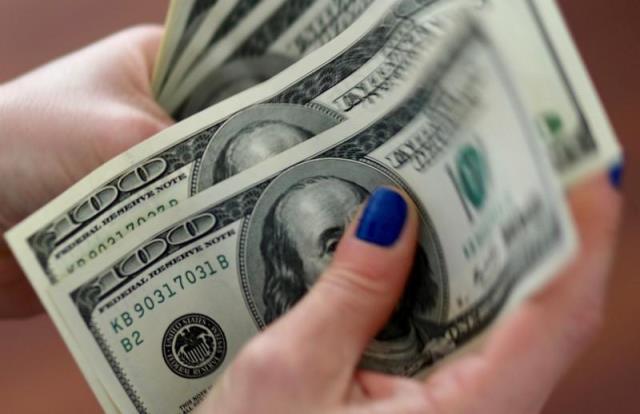The dollar edged higher against the euro, on Monday, close to a 10-week high hit last week, on news German Chancellor Angela Merkel would not seek re-election as head of her CDU party.
More broadly, the dollar added to recent gains against other major currencies, supported by robust U.S. consumer spending data on Monday.
Merkel said she would not seek re-election as party chairwoman, heralding the end of a 13-year era in which she has dominated European politics.
“Currency markets considered her the Iron Lady of Europe,” said Karl Schamotta, chief market strategist at Cambridge Global Payments in Toronto.
“This is certainly not positive for the euro’s political backing,” he said.
Merkel’s weakness at home may limit her capacity to lead in the European Union at a time when the bloc is dealing with Brexit and a budget crisis in Italy, said Schamotta.
Merkel has loomed large on the European stage since 2005, helping guide the EU through the euro zone crisis and opening Germany’s doors to migrants fleeing war in the Middle East in 2015 – a move that still divides the bloc and Germany.
“Merkel has been a stabilizing force for the euro zone throughout the last decade,” Craig Erlam, senior market analyst at online forex broker Oanda, said in a note.
The euro was 0.28 percent lower against the greenback.
Schamotta cautioned against reading too much into the euro’s weakness on the day.
“I would not suggest that this might have a permanent impact on the euro area. She is still chancellor and there is every possibility that she moves on up to an European Council position,” he said.
The dollar index, which measures the greenback against a basket of six major currencies, was up 0.35 percent, just shy of the 10-week high hit on Friday. The greenback rose 0.57 percent against the Japanese yen, reclaiming some ground lost last week.
The dollar has been boosted by growing volatility in capital markets spurred by concerns about corporate earnings and geopolitical uncertainty.
Data showed U.S. consumer spending rose for a seventh straight month in September.
The Fed is expected to raise interest rates again in December.
While speculators’ trimmed their net long bets on the U.S. dollar slightly in the latest week, they remain positioned significantly long the greenback, data on Friday showed.
The pound inched down to just above two-month lows as traders prepared for the British finance minister’s annual budget speech.












